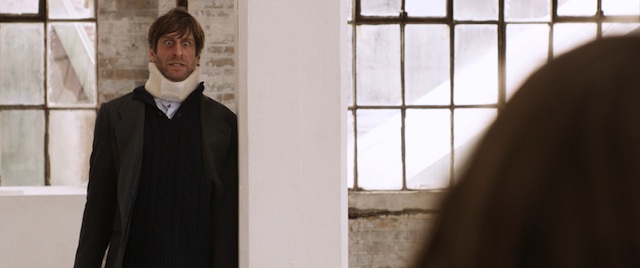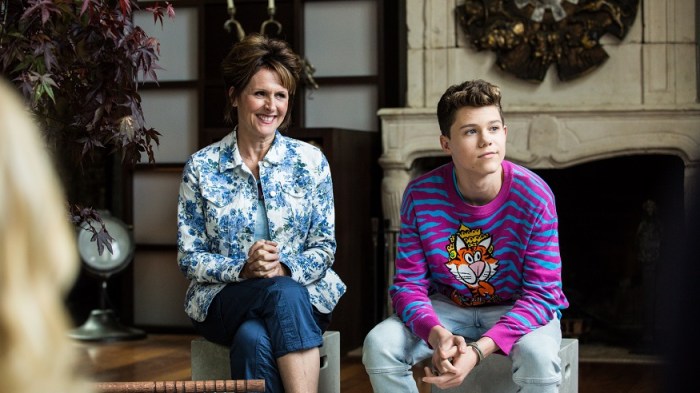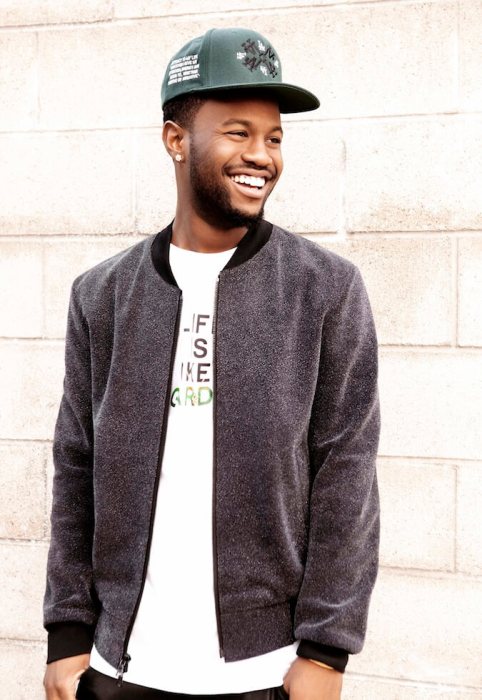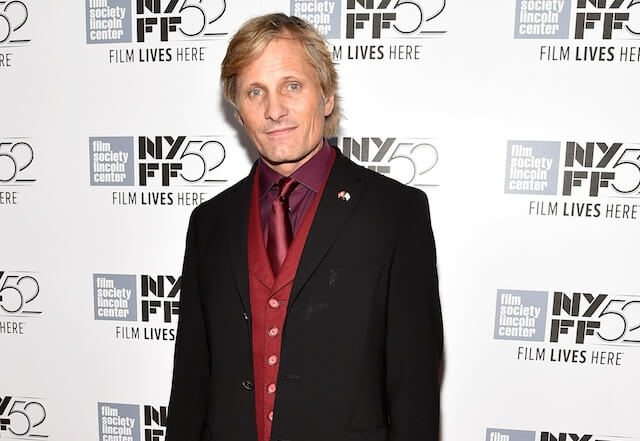Lawrence Michael Levine has long been a fixture of the microbudget indie film scene, whether it’s been directing his own film “Gabi on the Roof in July” — featuring the likes of Kate Lyn Sheil and Lena Dunham — or acting in films by Joe Swanberg (“All the Lights in the Sky”) and by his own wife and frequent collaborator Sophia Takal (“Green”). With “Wild Canaries,” he gets the chance to go…well, not big, but bigger. It’s a more polished indie with name actors (Alia Shawkat, Jason Ritter, Kevin Corrigan). And it’s a throwback to screwball comedies, telling of a couple (Levine and Takal), one of whom (her) suspects their neighbor was murdered, the other (him) who thinks that’s nuts. This isn’t a mere pastiche of screwballs. How did you view it going in?
The whole thing was Cassavetes meets Hitchcock. Cassavetes himself did a sort of homage to screwball comedy, which was “Minnie and Moskowitz.” That was the inspiration for having realism and screwball live in harmony. I was definitely conscious of avoiding pastiche. Films like “The Hudsucker Proxy” and “Intolerable Cruelty,” I felt they were doing it in that ’30s style. I was influenced by the dynamics of screwball — a daffy dame and an uptight guy — but stylistically I wasn’t trying to recreate them. A lot of screwballs, like “The Awful Truth,” are really about examining relationships. This does that too. How the leads react to the murder plot brings up fissures in their own union.
When you agree to spend your life with someone, their flaws become more apparent. People fight a lot before they get married. I think what happens is you start to experience your partner’s foibles with greater intensity, because you think, I’m going to have to be dealing with them for the rest of my life. You begin to view them as a crazy person who cannot be dealt with. The film plays on this anxiety. Noah thinks she’s insane. She thinks he’s insane for ignoring this clear threat. It’s about them realizing that neither of them is insane. The pulpy mystery subplot is a funhouse mirror of their own anxieties. You’re also exploring these relationship ideas with your real-life wife.
It was fun to do that. It’s an exaggerated version of our relationship. In a way, my character is a parody of what Sophia thinks of me, and her character is a parody of what I think of her. It gave us some perspective on our relationship. You’ve worked together often. How has it changed over the years?
It’s gotten easier. It’s really just about knowing when to take a backseat and cede power to another person. If it’s Sophia’s project, I can give my feedback in a measured calm tone. But when she says, “OK, I heard you and I’m going in another direction,” I just have to live with that. And vice versa. You just have to learn how to do that. It’s a lot like a relationship.
It’s basically exactly the same. Sometimes in your life you have to cede power too, right?
This is still a small film, but it’s much bigger than “Gabi on the Roof in July.”
This is the first time I’ve made a film with other people’s money. A lot of the decisions were informed by that. I’m a cinephile and I like esoteric and challenging films as much as the next film lover. I also love comedy, and I have a deep appreciation of thrillers and genre. Since I was making my first film where I didn’t have complete creative freedom — not just making a film for myself and not for an audience — I figured I’d take the opportunity to indulge in my more commercial instincts. It’s not like I felt forced to do that. I knew we had exhausted our financial resources with our previous two films, which were uncompromising and were entirely funded by our own savings. This instance I knew I was going to be chasing funding and I’d have better luck if I did a genre film or a comedy. I wanted to do one anyway. How did you find searching for funds?
I don’t enjoy bragging. I wasn’t raised to go around and say how great I am. But when you’ve got to convince people to give you thousands of dollars to make a film, you have to check that instinct at the door and self-aggrandize. It’s called for in that context. You act a lot in other people’s films, including your own. Did you always want to become an actor, or was it out of necessity — to make making films easier?
I always wanted to be an actor, but I never looked in the mirror and said, “You’re going to be a star.” I’m a regular guy. I had no delusions that I was going to be the net Leonardo DiCaprio. I always wanted to be a writer-director, and if possible I hoped I could act in my films. I admire Cassavetes, Woody Allen and Fassbinder — directors who wrote and acted. If you told me I could never act again I could live with that. I started studying acting because I wanted to learn about film, and I’m not a particularly technical person. I don’t really like computers or machines. I’m pretty hands-off. I got into acting because I thought it was the best way for me to get onset experience. Sometimes people don’t pay attention to the craft that goes into independent films. They just think about the budget.
Mumblecore gets a horrible rap from people who don’t realize you can’t make the kinds of movies that those people want to see for the money they have. I can’t make “The Wolf of Wall Street” for $9,000, or $900, as the case may be. You’ve got to work with what you have. This time I really wanted to prove to people that I’m a filmmaker. I wasn’t just picking up a camera and filming my friends. I know how to make a movie. I just didn’t have the funding to make anything slick or exciting. Part of me wanted to show people how creative I can be with a camera as well as with performances. I’m very proud of the performances I got in “Gabi” and I wanted to show another aspect of my work. I wanted to have the kind of lived-in performances I got in “Gabi” but also have these exciting comedy-action-suspense sequences — where the camera was just as important as the actors.
Interview: Lawrence Michael Levine on going bigger with ‘Wild Canaries’

IFC Films
Follow Matt Prigge on Twitter @mattprigge

















